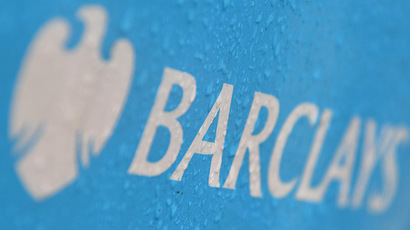Olympic hurdle: UK PM David Cameron pleads for Scotland to stay in UK
UK Prime Minister David Cameron has made an impassioned appeal to the people of Scotland to vote against independence in an upcoming referendum, even invoking Scottish-British efforts in the London 2012 Games.
Amid claims the UK leader used the opening of the Sochi Olympic Games to his political advantage, David Cameron presented his argument for Scotland remaining in the United Kingdom, which is comprised of four countries: Britain, Scotland, Wales and Northern Ireland.
Harking back to the London 2012 Olympic Games, in which Great Britain won 65 medals, Cameron waxed nostalgic: "For me, the best thing about the Olympics wasn't the winning. It was the red, the white, the blue.
"It was the summer that patriotism came out of the shadows and into the sun, everyone cheering as one for Team GB," Cameron said in his speech at the Olympic Park in East London.
About 4 million people above the age of 16 will be able to participate in the Scottish referendum, which is being strongly pushed by the country's ruling Scottish National Party, on September 18.
Cameron, whose family ties to Scotland lend credibility to his arguments in favor of unity, attempted to tug at the heartstrings of not only the Scottish people, but all citizens living in the United Kingdom.
He emphasized that the question of Scotland remaining in the United Kingdom made sense because it provided added security.
“I passionately believe it is in their interests to stay in the UK,” Cameron said. "That way Scotland has the space to take decisions, while still having the security that comes with being part of something bigger."
The British leader then pointed to the economic advantages of the UK remaining united in a world of economic uncertainty.

"We are quite simply stronger as a bigger entity, as an open economy of 63 million people with the oldest and most successful single market in the world," he said.
"That stability is hugely attractive for investors. Last year, we were the top destination for foreign direct investment in Europe. That is a stamp of approval on our stability - and I would not want to jeopardize that."
Referring to the United Kingdom as a “powerful brand,” Cameron said his speech was “not to the people of Scotland, but to the people of England, Wales and Northern Ireland. We would be deeply diminished without Scotland.
"This matters to all our futures. And everyone in the UK can have a voice in this debate."
Indeed, heavy economic indicators - such as the North Sea's oil and gas reserves - play a large role in the question of Scotland's independence.
"The economic case for independence rests largely on how much money Scotland would be able to get from North Sea oil and gas, and Westminster is sure to use that to its advantage," commented RT's Laura Smith.
Bob Dudley, chief of BP, is the most prominent businessman yet to criticize the thinking behind the push towards independence, Smith added.
The prime minister’s office is growing concerned as Scottish opinion looks increasingly enticed by the prospect of full independence.
A Scotland on Sunday/ICM poll on January 26 reported a five-point increase (from 32 percent to 37 percent) in support for independence since September of last year. At the same, support for the pro-UK camp also tumbled (from 49 percent to 44 percent).
Meanwhile, the Scottish Nationalist Party (SNP) condemned Cameron for what it called his “cowardly” attempts to politicize the Olympics.
"This is a cowardly speech from a prime minister who uses the Olympic Park in London to give high-handed lectures against Scotland's independence but hasn't got the guts to come to Scotland or anywhere else to make his case in a head to head debate,” said Deputy Leader Nicola Sturgeon, as quoted by BBC.
Sturgeon added that "using the Olympic stadium on the day the Winter Olympics begin and seeking to invoke the successes of London 2012 as an argument against Scotland taking its future into its own hands, it betrays the extent of the jitters now running through the ‘No campaign.’
“...Unfortunately, with this tawdry bid to use the Olympic Games – past and present – as a political tool, David Cameron has exposed the utter hypocrisy and double standards at the heart of the No campaign," the deputy minister concluded.
The pro-UK coalition is working to win over Scottish voters, many of whom are becoming acquainted with a white paper on independence, released last year by the nationalist government, which details how Scottish independence would work.
Cameron implored his audience not to be complacent on the issue. "There can be no complacency about the result of this referendum. The outcome is still up in the air and we have just seven months to go – seven months to do all we can to keep our United Kingdom as one, seven months to save the most extraordinary country in history. And we must do whatever it takes."














